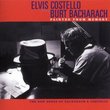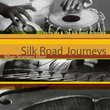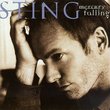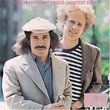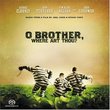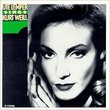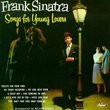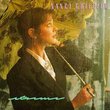| All Artists: Kronos Quartet Title: Black Angels Members Wishing: 0 Total Copies: 3 Label: Nonesuch Release Date: 6/21/1990 Genres: Pop, Classical Styles: Vocal Pop, Opera & Classical Vocal, Chamber Music, Historical Periods, Classical (c.1770-1830), Modern, 20th, & 21st Century Number of Discs: 1 SwapaCD Credits: 1 UPC: 075597924220 |
Search - Kronos Quartet :: Black Angels
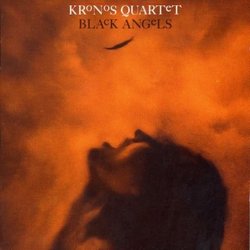 | Kronos Quartet Black Angels Genres: Pop, Classical
No Description Available. Genre: Classical Music Media Format: Compact Disk Rating: Release Date: 3-JUL-1990 ![header=[] body=[This CD is available to be requested as disc only.]](/images/attributes/disc.png?v=15401716) ![header=[] body=[This CD is available to be requested with the disc and back insert.]](/images/attributes/disc_back.png?v=15401716) ![header=[] body=[This CD is available to be requested with the disc and front insert.]](/images/attributes/disc_front.png?v=15401716) ![header=[] body=[This CD is available to be requested with the disc, front and back inserts.]](/images/attributes/disc_front_back.png?v=15401716) |
Larger Image |
CD DetailsSynopsis
Product Description No Description Available. Genre: Classical Music Media Format: Compact Disk Rating: Release Date: 3-JUL-1990 Similarly Requested CDs
|
CD ReviewsStunning anti-war string quartets R. Hutchinson | a world ruled by fossil fuels and fossil minds | 11/16/2003 (4 out of 5 stars) ""Black Angels," the amazing string quartet written by George Crumb in 1970 in response to the Vietnam War, is what inspired the formation of the Kronos Quartet. They set it to disc in 1990, and unfortunately it has remained a timely testament to the ongoing terror and tragedy of war. According to Crumb, "[t]he work portrays a voyage of the soul. The three stages of this voyage are Departure (fall from grace), Absence (spiritual annihilation) and Return (redemption)." It is a resolutely modern work, not the sort of thing Haydn would ever have expected. The opening is called "Night of the Electric Insects," and that gives you an idea. Absolutely brilliant "Black Angels" is 18 minutes long, and opens the disc, and Shostakovich's 8th quartet, at 20 minutes, is the closer. Kronos gives a hard-edged reading of the famous piece, dedicated to "the victims of war and fascism." It is strongest in the louder, faster sections, and not quite as effective in the slower sections, where the Borodin Quartet conveys more feeling, more poignancy (see my review of their 1990 recording of DSCH quartets 2, 3, 7, 8, 10 & 12). A fine performance, though, of a 20th century classic. Unfortunately I don't have much good to say about the three shorter pieces in between. I've listened to this disc many times now, and I am just not won over by the Tallis, Marta or Ives. It's fun to hear a hoarse Charlie Ives shouting and ranting about the soldiers "Fighting for the People's New Free World," but it reminds you that he was probably a manic-depressive, and you want to tell him to take his medicine. Other than checking in now and then to see if these 3 have grown on me, I typically play either "Black Angels" or the 8th as stand-alone works, and so the 4 stars reflects the fact that the disc as a whole is less than satisfying." Difficult to express in words R. Hutchinson | 02/12/2002 (5 out of 5 stars) "Upon the initial listening, I felt that "Black Angels" was the only piece presented on this album that was worthwhile listening. Initially, I felt that the Tallis, Marta, and Ives pieces were useless filler tracks, and that Kronos simply didn't do a particularly good job with the Shostakovich (which, along with Black Angels, is one of the most important contributions to the string quartet this past century).However, the entire CD begins to fall into place in one's mind. First, the Tallis piece "Spem in Alium"'s positioning in the album is fascinating and effective. After the emotionally disturbing and draining Black Angels, we hear this piece, which reaffirms much of the faith in people we lost upon hearing Black Angels.The Istvan Marta piece is a good middle piece. It is in the same vein as Black Angels and String Quartet No 8 in that it is meant to disturb and provoke. The voice that we hear throughout the piece is not annoying, as some people have said. Listen more closely - it is a deeply moving and personal work.The Ives lightens the mood slightly. On an album such as this, it's important to have at least one bright (ie happy) spot. Here it is in this scherzo-esque piece.Now we come to the Shostakovich. Truthfully, I'm still not sure if I like Kronos's reading of it. Frequently it feels as though they missed the point, as though the pain and anguish never fully got through to them. It's an awfully fast reading, which is interesting in some respects. I'm still working on this, which is a good sign - it means their reading isn't bad, just different from what I'm used to.That's sort of what this album is all about though - presenting you with a side of music you aren't generally used to. It's extremely dark and anguished, but it's important to hear this music. It's a reminder that life has a dark side." Excellent, but not ideal new music guy | NY, NY United States | 04/03/2002 (4 out of 5 stars) "This is among Kronos' better recordings, and includes perhaps their only performance of a standard-repertoire work that can stand up to comparison with other groups' performances (the Shostakovich).Black Angels is an immensely powerful piece, and this is overall a fine performance of it. One major issue though: Crumb calls for an amplified string quartet, and if memory serves, specifically requests that the purpose of the electronics be only to amplify and not to distort or alter the string sound. Kronos' natural sound is somewhat thin and nasal, but levels here have been adjusted to give the group a more "electric" tone quality. They sound in many places less like a string quartet and more like a MIDI file. For more of the former sound, I'd recommend the Cikada Quartet's performance, though that disc also has its issues. Also, the quartet doesn't play the ossia version of the Death and the Maiden arrangement which opens the second section, in which the pitch lowers incrementally first from D minor to C# minor and then to C minor, as does the Concord Quartet (who recorded this work in collaboration with the composer). It's a nice effect, and sorely missed here.Shostakovich's 8th string quartet is perhaps his most often heard piece, and there are excellent performances from several groups, notably the Fitzwilliam and Emerson quartets (the latter performance is live). To that short list I would tentatively add Kronos. Gone from their sound is the dark, brooding Russian depth of tone and color that make the above performances so powerful. Replacing that is a fiery energy, and at times a certain lack of clarity. The fast movements are gritty and rough, the slower movements not quite as stark as they could be. But it's a unique and moving recording, worth hearing.The Ives is light, more of a curiosity than anything else. The Marta might be powerful to some, but I was yawning. The Tallis is a weak arrangement and is given a weak performance. Kronos' style of playing early music basically seems to consist of putting on practice mutes and playing everything non-vibrato and strictly in tempo. It's worth skipping."
|

 Track Listings (11) - Disc #1
Track Listings (11) - Disc #1